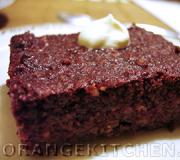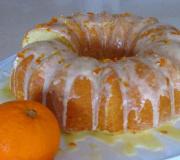Library of the teacher of Russian literature. Electronic resources for Russian language teachers
Electronic resources for Russian language teachers
Newspaper "Russian Language" and website for teachers "I'm going to a Russian language lesson"
Gramota.Ru: reference and information portal "Russian language"
Collection "Dictations - Russian language" of the Russian general education portal http://language.edu.ru Culture of written speech
Office of Russian Language and Literature of the Institute of Content and Teaching Methods of the Russian Academy of Education
Winged words and expressions
International Association of Teachers of Russian Language and Literature (MAPRYAL) http://www.mapryal.org World of the Russian Word
National Corpus of the Russian Language: information and reference system
Basic spelling compact: a guide to Russian spelling
Basic rules of Russian grammar
Rhetoric, Russian language and speech culture, linguoculturology: electronic linguoculturological courses
Russian Society of Teachers of Russian Language and Literature: portal "Russian Word"
Russian phonetics: multimedia online textbook
Russian writing: origin of writing, manuscripts, fonts
Distance learning system "Vedi" - Russian language
Vocabulary: website for teachers E.V. Arkhipova
Russian Language Help Desk
Russian language tests
Russian Language Development Center
Philological portal Philology.ru
Electronic textbooks on the Russian language for schoolchildren
Literature
Newspaper "Literature" and website for teachers "I'm going to a literature lesson"
Collection "Russian and foreign literature for school" of the Russian General Education Portal
BiblioGuide - books and children: project of the Russian State Children's Library http://www.bibliogid.ru
Virtual Museum of Literary Heroes
To help a young teacher: website of the teacher of Russian language and literature L.O. Krasovskaya
Methods of teaching literature
Federal educational portals
UNITED COLLECTION OF DIGITAL EDUCATIONAL RESOURCES school-collection.edu.ru
Russian education
Russian general education portal
Social, humanitarian and political science education http://www.law.edu.ru
Information support portal for the Unified State Exam
Specialized portal on information and communication technologies in education
System of federal educational portals http://www.edu.ru/db/portal/sites/portal_pag e.htm
Open College
Electronic library of articles on education
Teacher.Ru http://new.teacher.fio.ru COM
School world
Repository of teaching materials
Novosibirsk Open Educational Network
All Internet Education
Pedagogical magazine "Teacher"
Culture of writing
Bibliomaniac's first aid kit
All-Russian Museum of A.S. Pushkin.
Museums of Russia
Encyclopedias, dictionaries, reference books Rubricon
The largest information and encyclopedic project of the Russian Internet. The server contains full electronic versions of well-known encyclopedias and dictionaries (Great Soviet Encyclopedia, Small Medical Encyclopedia, Brockhaus and Efron Encyclopedic Dictionary, Encyclopedia "Cities of Russia", Encyclopedia "Myths of the Peoples of the World", Literary Encyclopedic Dictionary, etc.) - more than 60 in total titles. Universal Encyclopedia of Cyril and Methodius
More than 10 thematic encyclopedias, 75 thousand articles, 30 thousand illustrations. Sections: "Society, economics and politics"; "Countries, continents, oceans"; "Fauna and Plants"; "Story"; "Art and Literature"; "Science", etc. Search by thematic headings and keywords. Encyclopedia "Around the World"
The site was created to help schoolchildren and students. Main sections: history, humanities, culture and education, medicine, science and technology, earth sciences, countries of the world, sports. The search is carried out by thematic headings and keywords, one or all sections at the same time. Glossary.ru
Service of thematic explanatory dictionaries. The site contains more than 6,000 glossaries on economic, biological, technical and related topics. Simple search system. Dictionaries and reference books http://www.iu.ru/biblio/dict.aspx#find
Russian biographical dictionary
Teacher's newspaper
Newspaper "First of September"
Reference and scientific materials:
http://www.ruscorpora.ru/ – National Corpus of the Russian Language – information and reference system based on a collection of Russian texts in electronic form
http://etymolog.ruslang.ru/ – Etymology and history of the Russian language
www.mapryal.org/ – MAPRYAL – international association of teachers of Russian language and literature
http://philology.ru/default.htm – Russian philological portal
http://russkiyjazik.ru/ – Encyclopedia “Linguistics”
http://mlis.ru/ – Methodological and literary Internet service (MLIS) is created as a virtual space accumulating scientific, methodological, pedagogical experience relevant for a modern literature teacher
Electronic libraries, archives, manuals:
Catalog of educational resources on literature
http://litera.edu.ru/ – Collection: Russian and foreign literature for school
Teaching materials:
www.uchportal.ru/ – Teacher’s portal. Lessons, presentations, tests, tests, computer programs, methodological developments in Russian language and literature
www.Ucheba.com/ – Educational portal “Ucheba”: “Lessons” (www.uroki.ru), “Methods” (www.metodiki.ru), “Manuals” (www.posobie.ru)
www.pedved.ucoz.ru/ – Educational website “PedVeD” – help for a literature teacher, philology student
www.proshkolu.ru/club/lit/ – Club of teachers of Russian language and literature on the Internet portal “ProShkolu.RU”
http://www.portal-slovo.ru/philology/ – Philology on the portal “Slovo” (Russian language; literature; rhetoric; teaching methods)
www.uroki.net/docrus.htm/ – Website “Uroki.net”. For teachers of Russian language and literature: lesson and thematic planning, open lessons, tests, methodological developments, lesson notes, presentations
http://collection.edu.ru/default.asp?ob_no=16970/ – Russian educational portal. Collection of methodological developments for schools on Russian language and literature
www.a4format.ru/ – Virtual library “Lesson in a4 format”. Russian literature of the 18th–20th centuries (for presentations, lessons and Unified State Exams)
www.metodkabinet.eu/PO/PO_menu_RussYaz.html/ – Project “Methodkabinet”. Teacher of Russian language and literature (www.metodkabinet.eu/PO/PO_menu_Litera.html)
www.mgn.ru/~gmc/rus.html/ – City Methodological Center of Magnitogorsk. Methodological materials for teachers of Russian language and literature
http://pavlrimc.narod.ru/RUS_SEMINAR.html/ – Methodological center of the education department of the Pavlovsk district of the Krasnodar region. Materials of the seminar “For teachers of Russian language and literature”
www.it-n.ru/communities.aspx?cat_no=2168&tmpl=com/ – Network of creative teachers. Information technology in Russian language and literature lessons
http://school.iot.ru/ – Internet training. Teachers' methodological support website
http://slovesnikural.narod.ru/ – Ural branch of the Russian Academy of Education. Institute of Philological Research and Educational Strategies "Slovesnik"
http://infoteka.intergu.ru/index.asp?main=res&id_subject=23#./ – Information library of teaching materials in the Russian language: website of the Internet state of teachers InterGU.ru
http://infoteka.intergu.ru/index.asp?main=res#/ – Information library of methodological materials on literature
http://person.edu.ru/default.asp?ob_no=2465/ – Teacher’s finds: competition of methodological developments for school
http://www.prosv.ru/umk/konkurs/info.aspx?ob_no=12267/ – Works of the winners of the “Teacher to Teacher” competition of the publishing house “Prosveshcheniye”
http://www.wiki.vladimir.i-edu.ru/ - Community of language teachers
Olympics, competitions:
Electronic library of a teacher of Russian language and literature
Salimyanova Zulfiya Zakirovna,
teacher of Russian language and literature MBOU "Secondary School No. 11" Salavat
SLIDE 1 Today there are a huge number of resources of interest to teachers. First of all, this applies to electronic libraries: sites that collect electronic versions of texts - literary works, critical, memoirs, scientific, methodological and didactic literature.
My task is to try to demonstrate forms of working with electronic libraries that could help a practicing teacher in his work.
SLIDE 2 So what is an electronic library?
An electronic library is an ordered collection of heterogeneous electronic documents equipped with navigation and search tools. It can be a website where various texts and media files are gradually accumulated, each of which is self-sufficient and can be in demand at any time.
SLIDE 3 With all the abundance of educational sites, each teacher already has in his arsenal his own catalog of selected sites with which he systematically works. I will share my experience. I understand that I will not discover America, but still, still, still...
SLIDE 4 So what's included in my digital library? I can split my entire library into 2 parts:multimedia library and in demand by menetwork resources .
Multimedia library - this is toa collection that includes materials in audiovisual formats, in the form of Databases and encyclopedias on CD-ROMs, programs on video discs. Students enjoy using its opportunities and informal atmosphere for self-education and communication.
SLIDE 5 my multimedia library make up 1) a series of CDs for the textbook “Literature” by V.Ya. Korovina. This phonograph contains audio recordings of artistic readings of works by classical writers; here you can also listen to songs and romances based on poems by Russian poets. “Sounding Reader” makes the study of literature more lively and emotional.
2) Electronic supplements “Literature” and “Russian Language” to the magazine of the publishing house “First of September”. Here you can find methodological materials that complement and expand the teacher’s pedagogical arsenal; development of integrated lessons, games, excursions, performances for students; official documents; didactic materials, tasks and much more that may be needed to conduct lessons.
3) CD series "Lessons of Russian language and literature from Cyril and Methodius" as well as
4) Interactive teaching aids “Visual Russian Language” and “Visual Literature” , which recently arrived in all school libraries, are also my assistants. Here the teacher can use animation to illustrate his lecture or invite students to familiarize themselves with the contents of the screen
SLIDE 6 and talk about, for example, when a dash is placed between the subject and the predicate in a sentence.
SLIDE 7 Then you can move on to the workshop (this includes completing the task of connecting, and “Third is odd,” and “Test.” Of course, it is not at all necessary to use all the tabs on the topic being studied during the lesson (don’t forget about the SanPin norms). But sometimes completing an electronic exercise can serve to mobilize attention, sometimes for relaxation, sometimes by completing a task you can finish the lesson.
SLIDE 8 Do not forget that the choice of resources in a teacher’s electronic library largely depends, of course, on the skill and personality of the teacher, the purpose and objectives of the lesson, the level of preparedness of students, the equipment of the classroom, and much more.
SLIDE 9 If we talk about the second group of the electronic library, about network resources , then I want to say that when preparing for a lesson or extracurricular event, I use ready-made modern educational programs.Today the choice of electronic products is large. For example, II divided the library of electronic media into 2 sections:
CRY Section 1 – information and encyclopedic,
Section 2 – informational and educational.
CRY Working withfirst group ( information encyclopedic), we turn for help to the non-profit electronic library "ImWerden» (collected by Munich literature lover Andrei Perensky) . Rare audio and video materials are collected here. The section “Reading by the Author” contains fragments with recordings of the author’s reading, although not always of good quality. Here you can hear the voices of Akhmatova, L. Andreev, A. Bunin and others. Of no less interest is the “Documentary Video” section, where you can find videos with S. Yesenin, Zabolotsky and others.
I would like to draw your attention to the resource “FEB: Fundamental Electronic Library “Russian Literature and Folklore”. Why might a language teacher need to turn to them? They are of interest primarily in critical comments on texts and draft versions, which allow one to trace the evolution of the author's intention.
A huge catalog of information resources on the Russian language is located on the websites"Teacher Portal" , Festival of Pedagogical Ideas “Open Lesson” publishing house "First of September"http://festival.1september.ru,“Network of Creative Teachers”, “Unified Collection of Digital Educational Resources” http://school-collection.edu.ru. Here you will find a collection of lessons, presentations, extracurricular activities, printable tests, planning and much more. You can post your own developments and exchange experiences.
CRY If we talk aboutinformation and educational section , then this includes tests and computer simulators. They are especially significant at the stage of consolidation and control. Unfortunately, I don’t have internet in my office. Therefore, I either print out the KIMs or post them on my VKontakte wall, the children solve them and submit them to me for checking.
SLIDE 10 In in In final classes I provide links to online tests, such as the Educational portal for preparing for Russian language exams in the OGE, Unified State Exam format , . Students register on websites and do their homework (and I receive statistics by email ).
In contact with"Merry Hive".
SLIDE 11. I also use it at workOnline trainer "Web-Literacy" - modern assistant teacher of the Russian language. I and the children really like it. This program helps develop spelling skills.
SLIDE 12. 1) The teacher selects an exercise that corresponds to the material being studied and gives it to students as homework.
Students log into the site using passwords, complete the exercise on their home computers, and immediately work on their mistakes.
SLIDE 13. I (the teacher) receive the results of the class’s work in a single table of results, where I immediately see which spellings are worth working on again.
I started working with this simulator at the end of the last school year, and will continue this year. The simulator has one drawback - it does not provide tasks for punctuation. But since I am now teaching students in grades 5-7 and for the most part we are working on spelling vigilance, this option suits me for now.
You can subscribe any day, without restrictions. The subscription is valid from the date of registration for the duration of the subscription period.
You can order an invoice and subscribe from the teacher’s page in the simulator.
Please note that some banks may charge a fee for processing the payment.
9 months
3,500 rubles
6 months
2,500 rubles
3 months
1,500 rubles
1 month
600 rubles
SLIDE 14.
Thus, electronic libraries are the most modern and convenient way to work with library resources, allowing you to use all available technical means.SLIDE
15. THANK YOU FOR YOUR ATTENTION!Aleria.net: free library.
Booksite.Ru - full-text library.
Bookz.ru In the electronic library you can download books, reference books, magazines and dictionaries in electronic form for free. For ease of navigation, in addition to the alphabetical catalog of authors, an alphabetical catalog of works is also available, i.e. You can search for books using alphabetical lists. In addition, new tools that simplify navigation through the library provide you with a variety of ratings (most downloaded, most popular search queries, etc.).
E-Reading is a large online library.
EOLSS (Encyclopedia of Life Support Systems)- Encyclopedia of life support systems. The online virtual library presents a wide range of subjects, including both panoramic overviews of the state of the art and detailed materials. Unlike most encyclopedias, whose content is organized alphabetically, the EOLSS body of knowledge is organized thematically. Subjects include: Earth and atmospheric sciences, mathematics, physics, energy, nature conservation; ecology, food and agricultural sciences, human resources, management, etc. Language - English.
Europeana- European digital library with 14 million objects - books, maps, photographs, paintings, films and music videos. All of them are freely available. Europeana enables users to explore the world of digital resources from Europe's museums, libraries, archives and audiovisual collections. It also facilitates discovery and interaction in a multilingual information space where users can experience, be inspired by and participate in the creation of Europe's rich and diverse cultural and scientific heritage. On the Europeana Communities pages you will find useful links to online resources. These sites will help you explore, study European cultural and scientific heritage and share your knowledge with others.
Fictionbook. The resource presents books of the following genres: science fiction, fantasy, prose, romance novels, detective stories, action-packed works, adventures, science and education, ancient literature, reference books, business literature, etc.
Google - Search for full text of books and new books:
Linguists. Reading room. Articles on linguistics and literary criticism.
NeHudLit.Ru - NON-FICTION LIBRARY.
Readr.ru is an electronic library created by a group of authors from several countries for easy access to new releases and classics of literature.
Ruthenia. Department of Russian Literature, University of Tartu.
ARBICON - Association of Regional Library Consortia:
Anna Akhmatova. All poems on one page.
Fort/Da Library by Yanko Vyacheslav.l
Library "ImWerden"- digital library. Main formats: PDF, MP3 and AVI. The library contains the largest collection of author's readings of their works in audio and video formats on the RuNet. On the website of the Library "ImWerden" in MP3 format you can find recordings of the author's readings of their works by Sergei Yesenin, Alexander Blok, Vladimir Mayakovsky, Anna Akhmatova, Boris Pasternak, Arseny Tarkovsky, David Samoilov, Arkady Steinberg, etc. The section "XXI Century" publishes texts sent by authors for publication and selected by the editor.
Library of Ancient Literature.
Library of Humanities.
Library of the publishing house "Russian Way".
Library of the history of Russian philosophy and culture “House of A.F. Losev”.
Library of the Faculty of History of Moscow State University.
Library of books in the series Life of Remarkable People.
Library of Maxim Moshkov.
Library World of Encyclopedias.
Library Museum of the Decembrists.
Library of Orthodox Literature.
Library of rare books DjVu.
Library of Religious Studies and Russian Religious Philosophy in Editions XVIII - AD. XX centuries
Library Russian Humanitarian Internet University.
Library of Russian religious, philosophical and fiction literature "Vekhi".
Library of the site “Golubinsky. The real history of the Church."
Library of the Faculty of Philosophy of Moscow State University.
Library of Yakov Krotov.
Librarian.Ru(Librarian Tochka Ru) - electronic library of non-fiction literature on Russian and world history, art, and culture.
Biblical studies. Library of Ruslan Khazarzar.
Big Scientific Library (BNB) DJVU books. The main goal of the scientific information portal at the Big Scientific Library DJVU is to promote science and do everything possible for the development of Russian-language science.
Virtual library of Mikhail Epstein.
Military literature: primary sources, letters and diaries, memoirs, biographies, military history, research, articles, prose of war, poetry of war, technology and weapons, charters and laws.
Military-historical library.
Eastern literature. Library of Middle Ages texts.
World History Chronos.
World Digital Library. Here, anyone with access to the Internet can familiarize themselves with electronic copies of materials on the history and culture of various peoples: copies of manuscripts, rare books, maps, sheet music, photographs, films and other materials from the collections of national libraries and archives of a number of countries.
Greco-Latin cabinet.
Old Russian literature.
The European Library:
SINGLE WINDOW access to educational resources:
Magazine room. Electronic library of modern literary magazines in Russia.
Foreign literature and dictionaries.
Information, books about speed reading and memory training. "Vyacheslav Ivanov Research Center in Rome."
"KnigaFond"- an instrument of the educational system of new generation standards, providing wide legal access to literature necessary for the educational process using innovative technologies. Access is provided on the basis of direct agreements with copyright holders. The planned volume of the catalog will be more than 150,000 works. Lectures, monographs, textbooks and teaching aids, collections of articles, training modules, comments from experts, primary sources, methodological material - a wide range of educational and scientific literature is systematized in various fields of knowledge.
Cube - electronic library.
Laboratory of Science Fiction.
Lectorium- an electronic library where universities and famous lecture halls in Russia present their best lecturers. Access to materials is free and free.
Liberea. Old Russian literature.
Literary magazine.
Literary site "Foliant".
Literary network resource Litportal.
liters: one click to the most interesting! This resource sells e-books, audio books, films, multimedia, games, and software. Online reading, free downloads and forums - in our libraries ,




